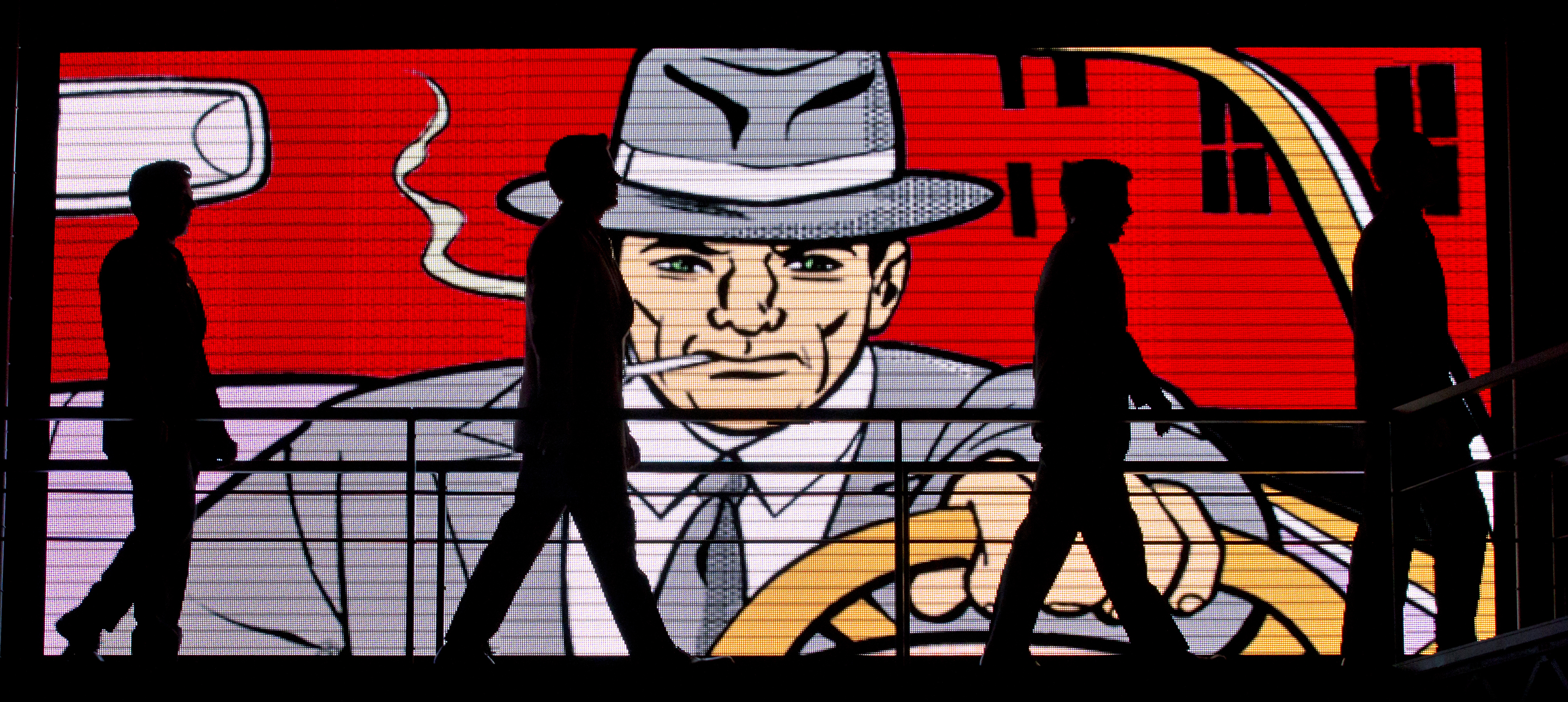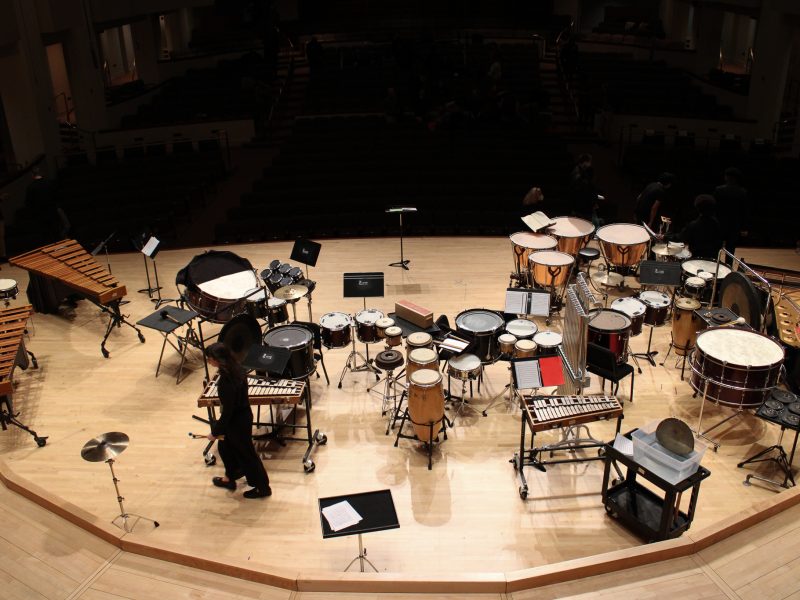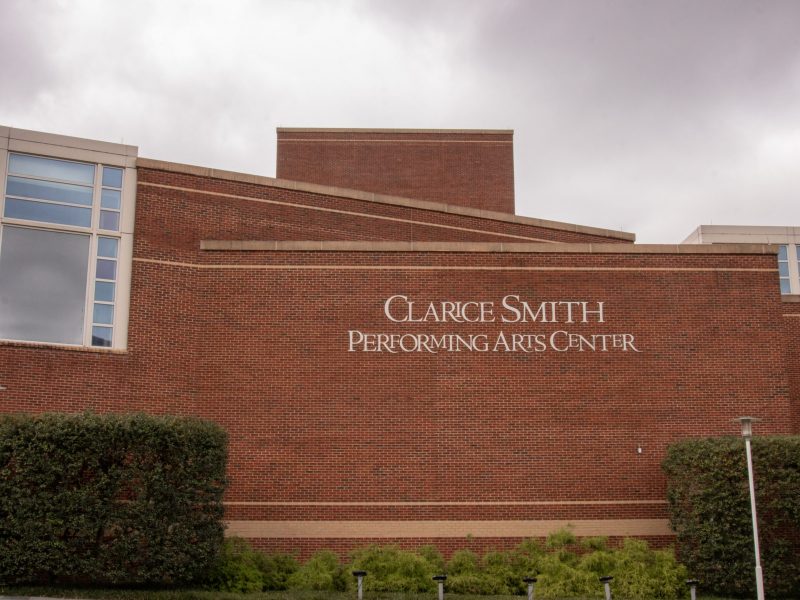What can I say about Jersey Boys that hasn’t already been written? Snappy costumes? Voices higher than one likes to believe possible?
Enough self-indulgent New Jersey cliches to make Chris Christie blush?
I was actually very pleasantly surprised by my experience at Jersey Boys — the smash hit jukebox show chronicling the rise and fall of ’60s quartet The Four Seasons — which runs at The National Theatre in Washington through April 24.
The vocals, while sometimes perplexingly pitched, were well-sung and brought down the house on Frankie Valli standards such as “December, 1963 (Oh, What A Night)” and “Can’t Take My Eyes Off Of You.”
The cast acted well with the funny but relatively predictable writing, led by the perfectly deadpan Keith Hines as Nick Massi. Our palpable anticipation for his turn to narrate the third segment (each Four Season relates one “act” of sorts, appropriately titled spring, summer, fall and winter) ignited laughter from an audience already enamored with his flat-line antics.
The music was a delight. Onstage instruments gave an immediacy to the show’s obviously intentionally dated score of two-bit rock-‘n’-roll interspersed with a few absolute diamonds.
If you were wondering whether to go, at this point I’ll say, sure. It was worth a night (oh, what a night), it was very adequately entertaining and, if nothing else, I had good company.
But if you want something a little more erudite and functionally useless, here you are:
What the hell is up with the background lighting?!
It oscillates behind the show through extremes of art that don’t really gel, entirely filling an enormous LED wall far upstage — a dubious decision in and of itself, as even one darkened or errant bulb would ruin the display’s entire effect.
There are the four seasonal inter-titles, bubbly and pleasant with bold fonts and a colorful, summer-of-love air. This is funny, considering Bob Gaudio’s nauseatingly emasculating assurances that The Four Seasons’ fans weren’t those Pentagon-levitating dirty hippies shoving flowers up gun barrels.

At times, the comic book style invades to describe song inspiration, including with “Big Girls Don’t Cry” and here, in “Walk Like A Man,” a highlight of “Jersey Boys” at the National Theatre through April 24. (Photo courtesy of Jeremy Daniel)
There are the invariably stretched drawings that illustrate certain moments (a ride with a mobster, an encounter with a cop, the inspiration for “Big Girls Don’t Cry”). They do so in a manner that is a visual affront to the memory of Roy Lichtenstein, whose comic-book style they desecrate through pale emulation.
There is the silhouetted signage of the various lounges and dives the early Four Seasons frequented, whose film-noir aesthetic is vaguely reminiscent of Francis Cugat’s famous cover art for F. Scott Fitzgerald’s The Great Gatsby.
The pale-yet-radiant odes to neon lend the production an atmosphere that rivals the industrial photographic scenes that also crop up throughout the production. These include the warehouse outline of a mobster’s den or the industrial wastes of the Meadowlands (which themselves receive a funny but anachronistic jibe early as the swamp Garden Staters visit to watch New York’s sports teams).
The marquees also play a plot role in deciding what exactly the falsetto foursome ought to call themselves, an overplayed joke in the show that terms them The Romans, The Four Lovers and myriad other demonyms.
As the group negotiates a go-on or up-and-quit moment, a lounge’s name changes, and in luxuriant neon, The Four Seasons draws pregnant stares from the group — almost.
“What?” asks DeVito, a meathead character who is as close as the show comes to a villain.
“It’s a sign,” Valli responds, the literal and figurative double meaning presenting what I thought was the show’s best joke.
Thus, The Four Seasons are born.
The musical follows their ascent, breakup and renaissance through to a rollicking finale of “Who Loves You?” that brought to screen the two oddest backdrops — namely, a pair of outward-exploding squares reminiscent of Nam June Paik’s more annoying works and a cavalcade of interlocking circles harking back to your Windows 95 screensaver.
If you want me to wrap it up in a nice kicker bow for you, I’ll hazard this:
The singers from Jersey are quirky fellows, from Massi, who wakes at noon and loses it over towels, to Valli, whose voice is renowned in part because it’s just a little bit weird. So, there’s no reason the musical that reminds us who they are should be any different.
Put simply, there’s something a tad off about The Four Seasons, so it’s no problem for Jersey Boys to replicate that in its backdrops — intentionally or, more likely, not.
CORRECTION: Due to a reporting error a Bob Gaudio line was incorrectly attributed. This article has been updated.



